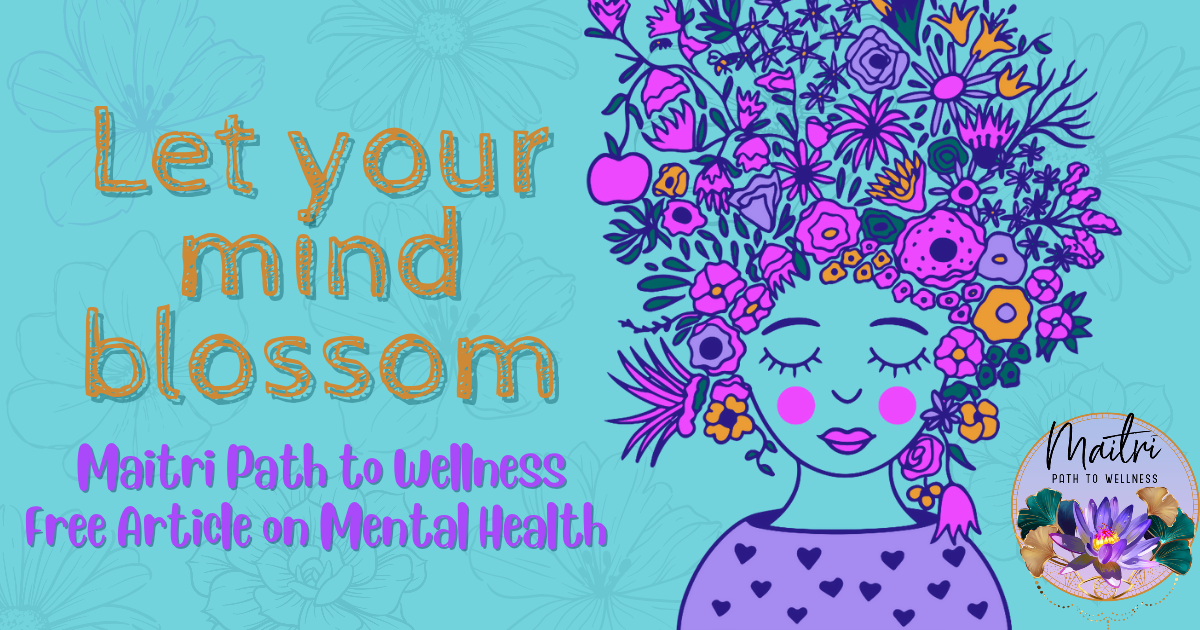Introduction
Anxiety is a prevalent mental health condition that affects millions of people worldwide. It’s crucial to recognize and understand the symptoms associated with anxiety in order to seek appropriate support and take proactive steps toward better mental well-being.
Understanding Anxiety Symptoms
Physical Symptoms
Increased Heart Rate and Palpitations
When anxiety strikes, your heart may start pounding rapidly, and you may experience palpitations. These physical manifestations occur due to the release of stress hormones that prepare your body for a “fight or flight” response. To manage rapid heartbeat during anxious moments, try deep breathing exercises and engage in relaxation techniques such as meditation.
Experiencing an increased heart rate and palpitations can be unnerving, but it’s important to remember that these symptoms are a result of your body’s natural response to stress. When you perceive a threat or danger, your sympathetic nervous system activates, triggering the release of adrenaline and cortisol. These hormones increase heart rate and blood flow to prepare you to react quickly. However, in the case of anxiety, this response is triggered in situations that are not necessarily life-threatening.
While it can be challenging to control the physical symptoms of anxiety in the moment, practicing deep breathing exercises can help you regulate your heart rate. Take slow, deep breaths in through your nose, hold for a few seconds, and then exhale slowly through your mouth. This technique activates the parasympathetic nervous system, promoting a sense of calm and relaxation.
Shortness of Breath and Chest Tightness
Anxiety can also lead to breathing difficulties, causing shortness of breath and chest tightness. These symptoms occur due to the activation of the sympathetic nervous system. Practicing deep diaphragmatic breathing and engaging in activities like yoga can help alleviate breathing difficulties associated with anxiety.
When you’re feeling anxious, your body goes into a state of heightened alertness. Your breathing may become shallow and rapid, leading to a sensation of not getting enough air. This can cause feelings of tightness or discomfort in your chest. It’s important to remember that these symptoms are a result of the body’s response to perceived danger, and they are not indicative of any underlying physical health issues.
To counteract these symptoms, focusing on deep diaphragmatic breathing can be beneficial. Take slow, deep breaths, allowing your abdomen to rise and fall with each breath. This type of breathing activates the parasympathetic nervous system, promoting relaxation and reducing the sensation of shortness of breath. Additionally, engaging in activities like yoga or tai chi can help regulate breathing patterns and promote overall relaxation.
Stomach Discomfort and Digestive Issues
The gut-brain connection plays a significant role in anxiety. Many individuals experience stomach discomfort, including sensations like butterflies, nausea, or even digestive problems during anxious episodes. Implementing a healthy diet, regular exercise, and stress-reduction techniques can help manage gastrointestinal symptoms related to anxiety.
When you’re feeling anxious, you may notice changes in your digestive system. This is because the brain and the gut are interconnected through a complex network of nerves, hormones, and neurotransmitters. When you experience stress or anxiety, it can affect the normal functioning of your digestive system, leading to symptoms such as stomach discomfort, butterflies in the stomach, nausea, or even digestive issues like diarrhea or constipation.
To alleviate these symptoms, it’s important to adopt a healthy lifestyle that includes a balanced diet, regular exercise, and stress-reduction techniques. Eating a nutritious diet that includes fiber-rich foods, probiotics, and avoiding triggers like caffeine and spicy foods can promote better digestive health. Regular exercise helps reduce stress and improves overall well-being. Engaging in stress-reduction techniques such as mindfulness meditation, deep breathing exercises, or engaging in activities you enjoy can also have a positive impact on your digestive system.
Cognitive and Emotional Symptoms
Excessive Worry and Overthinking
Anxiety often leads to excessive worry and persistent overthinking. Racing thoughts and catastrophic scenarios may dominate your mind, making it challenging to focus on the present moment. Cognitive-behavioral strategies, such as cognitive restructuring and mindfulness, can assist in redirecting and managing anxious thoughts effectively.
Excessive worry and overthinking are hallmark symptoms of anxiety. When you’re anxious, your mind tends to get caught up in a loop of negative thoughts and worst-case scenarios. This constant rumination can be exhausting and can significantly impact your ability to concentrate, sleep, and enjoy daily activities.
To manage excessive worry, cognitive restructuring techniques can be helpful. This involves challenging and reframing negative thoughts by examining their validity and considering more realistic and positive alternatives. Mindfulness practices, such as meditation or deep breathing exercises, can also help you stay grounded in the present moment and reduce the tendency to ruminate.
Restlessness and Irritability
Feeling restless and irritable are common emotional symptoms of anxiety. The constant feeling of being on edge can negatively impact your overall well-being. Engaging in relaxation techniques like progressive muscle relaxation and practicing self-care activities can help reduce restlessness and irritability associated with anxiety.
When anxiety takes hold, it can manifest as restlessness and irritability. You may find it difficult to relax or feel a constant need to be in motion. This inner restlessness can be distressing and make it challenging to find peace and tranquility in your daily life. Additionally, irritability can affect your relationships and interactions with others, causing strain and misunderstanding.
Engaging in relaxation techniques can be beneficial in reducing restlessness and irritability. Progressive muscle relaxation is a simple yet effective practice that involves systematically tensing and relaxing different muscle groups in your body. This technique helps release tension and promotes relaxation. Additionally, prioritizing self-care activities that bring you joy and help you unwind can contribute to a sense of calm and reduce irritability.
Difficulty Concentrating and Memory Problems
Anxiety can impair your ability to concentrate and negatively affect your memory. Racing thoughts and a heightened state of arousal can make it challenging to focus on tasks or retain information. Implementing techniques like creating a structured routine, breaking tasks into smaller parts, and practicing mindfulness can enhance your focus and memory despite anxiety.
When anxiety is present, it can be incredibly challenging to concentrate and remember information. The constant stream of thoughts and worries can create a mental fog that makes it difficult to focus on the task at hand. Additionally, anxiety can affect working memory, which is essential for retaining and processing information.
To overcome difficulty concentrating and memory problems associated with anxiety, implementing certain strategies can be helpful. Creating a structured routine and breaking tasks into smaller, manageable parts can make them more approachable and less overwhelming. Engaging in mindfulness practices can improve your ability to stay present and focused. Techniques such as meditation and deep breathing exercises can help calm the mind and enhance cognitive function.
Behavioral Symptoms
Avoidance and Withdrawal from Social Situations
Anxiety often leads to avoidance and withdrawal from social situations. Fear of judgment and excessive self-consciousness can hinder your ability to engage with others. Gradual exposure techniques, seeking support from a therapist, and practicing self-compassion can assist in overcoming social anxiety and gradually reintegrating into social settings.
When anxiety is present, you may find yourself avoiding social situations or withdrawing from interactions with others. This can be driven by a fear of judgment, feeling self-conscious, or worrying about embarrassing yourself in front of others. While avoidance may provide temporary relief, it can perpetuate anxiety and hinder personal growth and connection.
Gradual exposure techniques are effective strategies for overcoming social anxiety. This involves gradually and systematically facing feared social situations in a controlled and supportive manner. Seeking the guidance of a therapist trained in cognitive-behavioral therapy (CBT) can be invaluable in working through social anxiety. Practicing self-compassion and challenging negative self-talk can also help build resilience and confidence in social situations.
Sleep Disturbances and Insomnia
Anxiety can disrupt your sleep patterns, leading to sleep disturbances and insomnia. Racing thoughts and increased physiological arousal can make it difficult to fall asleep or stay asleep throughout the night. Implementing good sleep hygiene practices, such as establishing a relaxing bedtime routine and creating a comfortable sleep environment, can help improve sleep quality and quantity.
When anxiety is present, it can interfere with your ability to fall asleep or maintain a restful sleep throughout the night. Racing thoughts, worries, and a heightened state of arousal can keep your mind active, making it challenging to relax and drift into slumber. As a result, you may experience difficulties falling asleep or find yourself waking up frequently during the night.
To improve sleep quality and alleviate insomnia associated with anxiety, practicing good sleep hygiene is crucial. Establishing a relaxing bedtime routine can signal to your body that it’s time to unwind and prepare for sleep. This may include activities such as reading a book, taking a warm bath, or engaging in relaxation techniques. Creating a comfortable sleep environment, ensuring your bedroom is cool, dark, and free from distractions, can also contribute to better sleep.
Physical Tension and Muscle Stiffness
When anxiety takes hold, you may experience physical tension and muscle stiffness. The body’s response to stress can result in tightened muscles, leading to discomfort and even pain. Engaging in relaxation exercises like progressive muscle relaxation, yoga, or massage therapy can help reduce muscle tension associated with anxiety.
Physical tension and muscle stiffness often accompany anxiety. The body’s stress response involves muscle contraction, which can lead to persistent tightness and discomfort. Over time, this muscle tension can cause fatigue, pain, and even contribute to the development of musculoskeletal conditions.
Engaging in relaxation exercises can be beneficial in reducing physical tension and promoting relaxation. Progressive muscle relaxation involves systematically tensing and releasing different muscle groups in your body, allowing you to become more aware of muscle tension and actively release it. Yoga and stretching exercises can also help relieve muscle stiffness and improve flexibility. Additionally, massage therapy or self-massage techniques can target specific areas of tension and promote relaxation.
What Your Body Is Trying to Tell You
Listening to your body’s signals is crucial when it comes to anxiety. These symptoms are your body’s way of communicating that something needs attention. It’s essential to seek professional help for a proper diagnosis and treatment plan. Remember, you are not alone, and support is available to help you navigate through anxiety.
Conclusion
Anxiety symptoms can manifest in various ways, affecting not only your mental state but also your physical well-being. By understanding these symptoms, you can take steps toward managing anxiety and improving your overall quality of life. Remember to seek professional guidance, practice self-care, and reach out to supportive individuals in your life. You have the strength to overcome anxiety and lead a fulfilling, balanced life.
FAQs
Can anxiety cause physical symptoms?
Anxiety can indeed cause physical symptoms. When you experience anxiety, your body’s stress response activates, leading to physical manifestations such as increased heart rate, shortness of breath, stomach discomfort, and muscle tension. These symptoms are your body’s way of preparing for a perceived threat or danger, even if there is no immediate physical threat present.
How long do anxiety symptoms last?
The duration of anxiety symptoms can vary from person to person. Acute episodes of anxiety symptoms may last anywhere from a few minutes to several hours, while chronic anxiety can lead to persistent symptoms that last for weeks, months, or even years. It’s important to seek professional help if your anxiety symptoms significantly impact your daily life or cause distress.
Are anxiety symptoms the same for everyone?
Anxiety symptoms can vary from person to person. While some individuals may experience predominantly physical symptoms like rapid heartbeat and stomach discomfort, others may have more cognitive and emotional symptoms like excessive worry and irritability. It’s essential to remember that anxiety symptoms are subjective and can manifest differently for each individual.
Can anxiety symptoms mimic other health conditions?
Yes, anxiety symptoms can sometimes mimic other health conditions. For example, symptoms such as chest tightness and shortness of breath may resemble symptoms of a heart condition. It’s important to consult with a healthcare professional to rule out any underlying medical causes for your symptoms and obtain an accurate diagnosis.
How can I manage anxiety symptoms on my own?
While it’s important to seek professional help for anxiety, there are self-help strategies you can try to manage symptoms. These include practicing relaxation techniques like deep breathing and meditation, engaging in regular physical exercise, maintaining a balanced diet, getting enough sleep, and seeking support from loved ones. It’s important to find what works best for you and establish a self-care routine that promotes overall well-being.
When should I seek professional help for anxiety symptoms?
It’s advisable to seek professional help for anxiety symptoms if they significantly impact your daily life, persist for an extended period, or cause significant distress or impairment in functioning. A mental health professional can provide a proper diagnosis, offer evidence-based treatments such as therapy or medication, and provide the necessary support to help you effectively manage anxiety symptoms.
Please note that if you are experiencing severe distress or having thoughts of self-harm or suicide, it’s important to reach out for immediate professional assistance or contact emergency services in your area.

Hey there friend! I’m Brenden Fasken, a passionate advocate for mental health and the transformative power of recovery. As a proud recovering addict, I’ve traveled the winding roads of addiction and emerged on the other side, ready to share my experiences and insights with you. I enjoy sharing blogs that delve into the complexities of mental health, substance use disorders, and the journey of personal growth. I aim to break down barriers, spark conversations, and offer a beacon of hope to those who may be struggling. So, join me as we embark on this empowering journey together, exploring the depths of our minds, celebrating resilience, and embracing the transformative potential within each of us.
Through my own recovery journey, I’ve learned that life’s challenges can be our greatest teachers. With each hurdle, I’ve gained insights and perspectives that have shaped my understanding of mental health and addiction. From the darkest moments to the brightest triumphs, I share personal anecdotes, reflections, and practical advice that I’ve gathered along the way. Together, we’ll navigate the labyrinth of emotions, challenge societal stigmas, and uncover the power of self-care and self-discovery. So, buckle up and get ready for an engaging and insightful ride as we explore the nuances of mental health and embark on a shared quest for personal growth and well-being.

